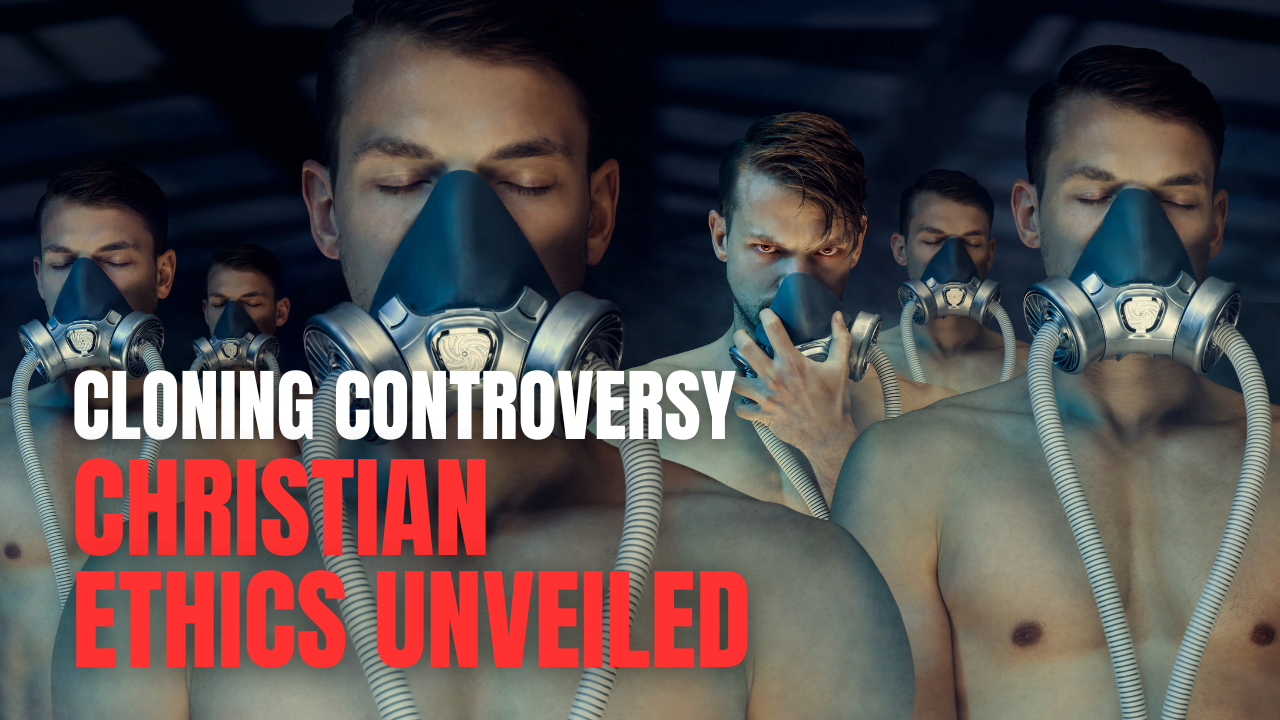No products in the cart.
Christian Ethics and the Cloning Dilemma: Through a Biblical Lens
This post contains paid and/or affiliate links. I make a small commission at no extra cost to you. Please see our Privacy Policy.
As a Christian grappling with the intricacies of modern scientific advancements, I find myself drawn into the contentious debate surrounding human Cloning. The ethical implications of cloning technology evoke strong reactions within the Christian community, rooted in theological principles and moral convictions.
In this discussion, I aim to explore the multifaceted reasons behind Christian opposition to human Cloning, drawing on biblical teachings and theological perspectives to shed light on this complex issue.
At the heart of Christian opposition to human Cloning lies a deep concern for the sanctity of human life, a concept deeply rooted in the Bible. Genesis 1:27 declares that humanity is created in the image of God. This theological foundation underscores the inherent dignity and worth of every individual. This foundational belief serves as a compass guiding Christian ethical considerations, particularly in bioethics.
The process of human Cloning, by its very nature, challenges the traditional understanding of human procreation. In Cloning, scientists manipulate genetic material to create a genetically identical copy of an existing organism.
This departure from natural reproduction prompts Christians to question the divine intent behind the creation of life. The Bible, in Psalm 139:13-16, poetically describes God’s involvement in forming individuals in the womb, emphasizing His intimate and intentional role in each person’s creation.
Human Cloning, seen as an attempt to circumvent this divine plan, is viewed by many Christians as an insult to the Creator’s design.
Furthermore, the Bible teaches that humans are stewards of God’s creation, entrusted with caring for and protecting it. With its potential for unintended consequences and ethical gray areas, Cloning raises concerns about the responsible use of scientific knowledge.
Christians argue that playing God, in the sense of manipulating the very essence of human life, exceeds the boundaries of ethical stewardship. This perspective is encapsulated in 1 Corinthians 6:19-20, where believers are reminded that their bodies are temples of the Holy Spirit, reinforcing the idea that tampering with the fundamental building blocks of life may violate this sacred trust.
The Christian opposition to human Cloning is not solely rooted in theological concerns; it also extends to considerations of familial relationships and the significance of human identity.
ADVERTISEMENT
Cloning disrupts the natural generational flow by creating individuals with identical genetic makeup but distinct chronological ages. This challenges the traditional understanding of family dynamics, where children are conceived through the union of two distinct individuals.
In Ephesians 5:31, the Bible emphasizes the unity and bond between husband and wife, suggesting that the creation of offspring involves the fusion of their unique qualities. By sidestepping this natural process, Human Cloning raises questions about the authenticity and depth of familial relationships.
Additionally, Christian opposition to Cloning is often underpinned by the fear of unintended consequences and the potential for abuse. While scientific advancements promise groundbreaking medical applications, the ethical landscape surrounding Cloning remains fraught with uncertainties.
The cloning process may introduce genetic abnormalities or unforeseen complications, leading to ethical dilemmas reminiscent of Mary Shelley’s “Frankenstein.” Guided by prudence, Christians express reservations about embracing technology with unpredictable outcomes.
Proverbs 14:16 counsels believers to be cautious and to weigh the potential consequences of their actions, a sentiment that resonates in the ethical discourse surrounding human Cloning.
The fear of Cloning being employed for exploitative purposes, such as cloning individuals for organ harvesting or creating duplicates for nefarious intentions, further fuels Christian reservations. The Bible, in Proverbs 6:16-19, condemns actions that sow discord and harm, reinforcing the Christian commitment to promoting the well-being and dignity of all individuals.
Cloning, when viewed through the lens of potential misuse, becomes a matter of ethical prudence and a call for Christians to safeguard against the abuse of scientific knowledge for destructive purposes.
While the opposition to human Cloning is deeply ingrained in Christian ethics, it is essential to acknowledge that perspectives within the Christian community vary. Some Christians, while sharing the concerns mentioned, may also explore the potential benefits of Cloning in alleviating human suffering, particularly in the context of medical advancements.
However, the central thread weaving through Christian opposition is the commitment to uphold the sanctity of life and preserve the divine order established by God.
My final Thought is that the Christian opposition to human Cloning is a complex tapestry woven with theological, ethical, and moral threads. Grounded in the belief in the sanctity of human life, the responsibility of stewardship, and the preservation of familial and societal order, Christians grapple with the implications of cloning technology.
Advertisement. Scroll to continue reading.
The Bible serves as a foundational guide, offering timeless wisdom that shapes Christian perspectives on the ethical challenges posed by Cloning.
As I reflect on these considerations, I am compelled to pose a question that resonates with the heart of this discourse: In a world where scientific advancements continually push the boundaries of what is possible, how can Christians navigate the intersection of faith and technology while remaining faithful to their convictions about the sanctity of human life?











